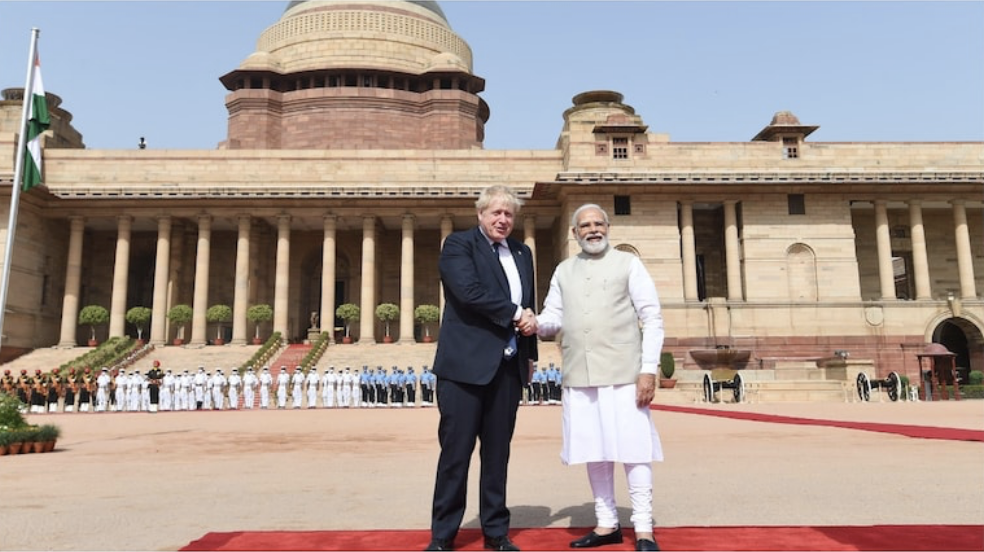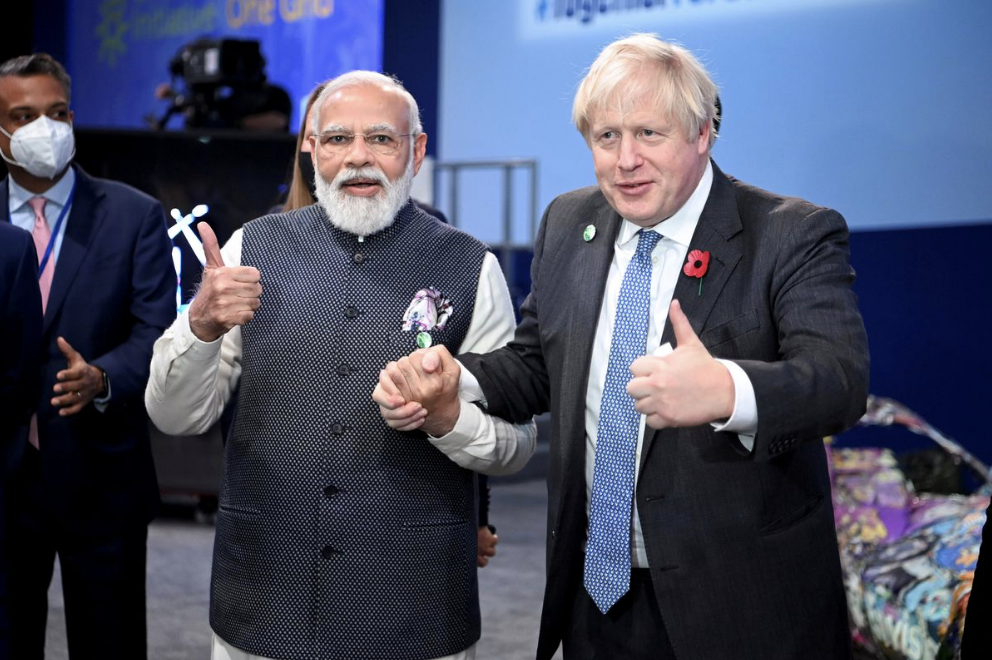PM Boris Johnson Visits India to Discuss Russia and Trade
Indian Prime Minister Narendra Modi and British Prime Minister Boris Johnson pose for a photo on April 22, 2022. Photo: TWITTER/@narendramodi
Last Thursday, British Prime Minister Boris Johnson visited Indian Prime Minister Narendra Modi in Gujarat, India to discuss potential trade options between the two nations and the ongoing Russian-Ukraine conflict. As a result of the COVID-19 pandemic, Prime Minister Johnson had to postpone his journey to India twice.
The Russian-Ukrainian war has impacted the geopolitics of several countries, forcing them to either choose sides or remain neutral. India is one of the countries that opted for the latter, deciding to remain neutral due to its dependence on Russia for oil and warfare.
India’s refusal to condemn Russia’s action in the United Nations General Assembly vote last month stirred controversy and strained the nation’s relationship with the West. Earlier this month, the United States and the United Kingdom were competing with Russia to seek India’s diplomatic support by sending their delegates to the South Asian country.
Prime Minister Johnson’s visit to India was a further attempt to persuade Prime Minister Modi to switch sides in the war. In a quote provided by Al-Jazeera, Johnson said, “As we face threats to our peace and prosperity from autocratic states, it is vital that democracies and friends stick together.”
However, it is not only India’s reliance on Russia that encouraged Prime Minister Johnson to fly 4000 miles to the South Asian country. Trade plays a vital role in the battle between Russia and the West in securing India as their ally. Despite the West severing ties with Russia on trade, Russia’s economy still remains intact due to India and China investing in Russian gas, oil, and weapons. Just this March, the Indian Oil Corporation purchased 3 million barrels of oil from Russia.
Indian Prime Minister Narendra Modi and British Prime Minister Boris Johnson pose for a photo in Glasgow, Scotland, 2021. Photo: REUTERS/Jeff J Mitchell
In the two days of Prime Minister Johnson’s visit to India, he considered future trade and investment with Prime Minister Modi and announced that he aimed to sign a free trade deal with India by the end of 2022. In light of the British Prime Minister’s visit, U.K. and Indian businesses will initiate deals worth more than a million pounds in investments which are predicted to create 11,000 jobs in the U.K. according to the British High Commission.
Prior to the visit, United Kingdom Foreign Secretary Liz Truss commented on the situation, stating that, “Deeper ties between Britain and India will boost security in the Indo-Pacific globally and create jobs and opportunities in both countries. India is an economic and tech powerhouse, the world’s largest democracy, and a great friend of Britain, and I want to build an even closer relationship between our two nations.”
While India’s stance on the Russian-Ukrainian war has been controversial, Prime Minister Johnson himself is currently facing a dilemma of his own. Back in the U.K., his journey to India was perceived as a means to divert attention from the Partygate scandal.
Despite the U.K. Prime Minister’s efforts, the Indian Prime Minister refrained from publicly declaring support—or lack thereof—for either the U.K. or Russia. India’s foreign secretary, Harsh Vardhan Shringla, expressed that both Prime Minister Johnson and Prime Minister Modi exchanged their views on the Russian-Ukrainian war and came to the conclusion that the war should end.
It is unlikely that India will terminate its relationship with Russia. Since the cold war, India and Russia have continually supported one another, a connection that Prime Minister Johnson acknowledged last Friday. Speaking to ANI news, he claimed that after consulting with Prime Minister Modi, the relationship between India and U.K is the strongest it has ever been and that both the countries aim to prevent “autocratic coercion.”


